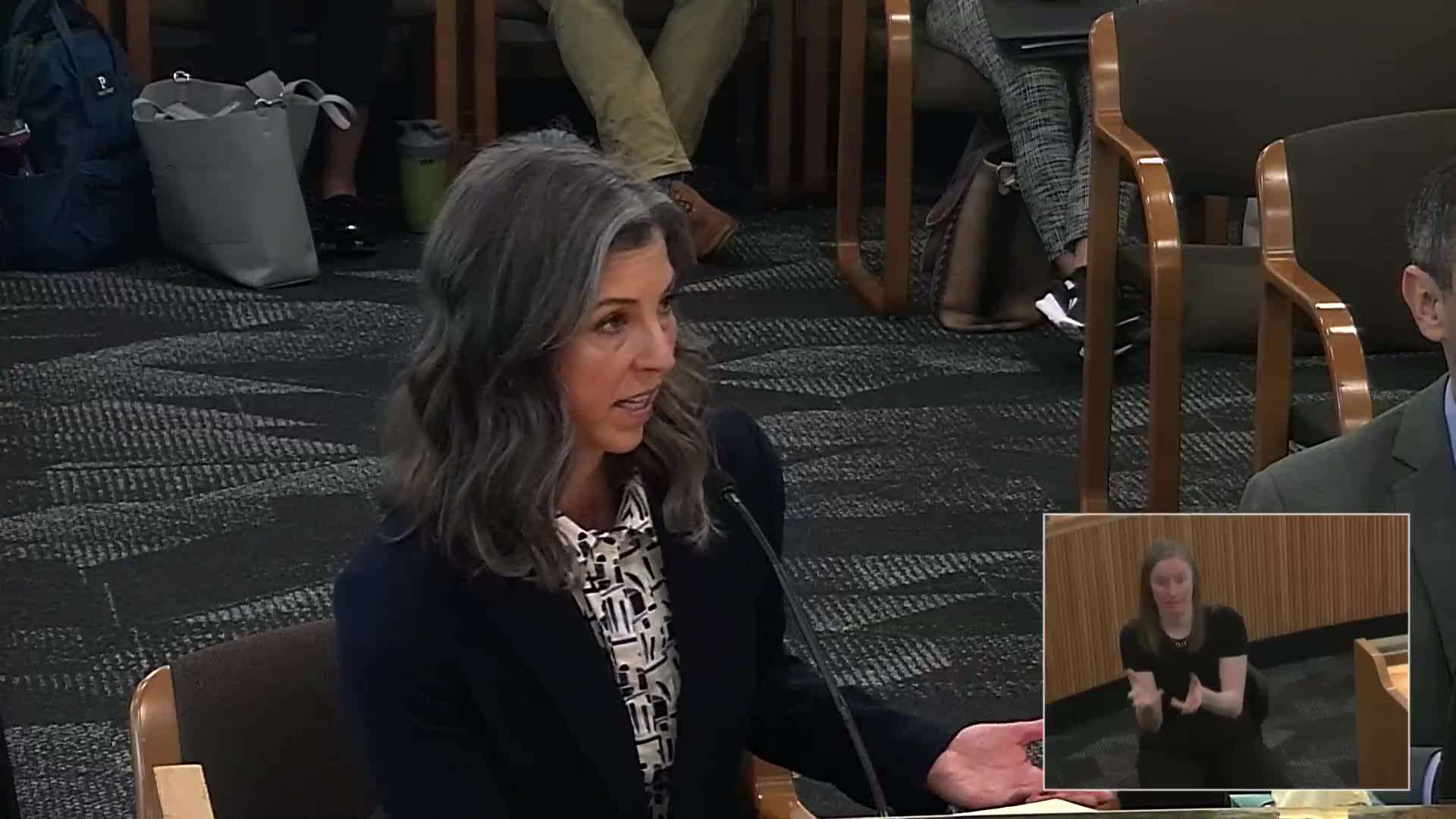Senate education committee hears testimony for HB 3694 to allow Oregon colleges to pay student-athletes for NIL
Get AI-powered insights, summaries, and transcripts
Subscribe
Summary
Representative John Lively (House District 7) and witnesses told the Senate Education Committee on April 30 that House Bill 3694 should be passed to allow Oregon colleges and universities to directly compensate student-athletes for the commercial use of their name, image and likeness.
Representative John Lively (House District 7) and multiple witnesses urged the Senate Education Committee on April 30 to support House Bill 3694, which would amend Oregon law to allow colleges and universities to directly compensate student athletes for the use of their name, image and likeness (NIL).
The bill’s sponsor summarized the proposal and said it “permits institutions to directly compensate student athletes or prospective student athletes for the use of their name, image, likeness, or athletic reputation” and adds contract-privacy protections and restrictions on certain types of promotions. Ellen, a staff member who summarized the measure for the committee, said the bill “protects a student athlete's contract from public disclosure law.”
Why it matters: Supporters told the committee that the NCAA and a proposed nationwide settlement are changing the rules so that colleges will be permitted to pay athletes directly beginning July 1, 2025, and they said Oregon law must be updated so in-state institutions are not put at a competitive disadvantage. Lisa Peterson, deputy athletic director at the University of Oregon, called HB 3694 “critical to ensuring that Oregon remains at the forefront of NIL policy.”
Student testimony and institutional perspective: Jennifer McMillan, identified as a student athlete at Oregon State University, described NIL opportunities as transformative and said allowing institutions to compensate athletes directly would reduce dependence on third parties. She told the committee, “For me name, image, and likeness opportunities have been truly transformative.” Max Ford, a former University of Oregon football player and attorney, said the sector is undergoing a “seismic shift” and warned that without statutory changes Oregon schools could lose recruits. In his remarks he said, “I urge your support to 3 6 9 4, House Bill 3 6 9 4.”
Legal questions: Representative Lively flagged a recently raised Department of Justice concern about part 6 of the bill that may implicate First Amendment issues; he said legislative counsel will review the issue and an amendment could be drafted if needed. Lively noted the bill is intended to align state law with an existing house settlement and with changes expected from the NCAA, and he said it “does not undercut the $20,500,000 cap included in the preliminary house settlement” referenced in prior legislation.
Committee action: The hearing was public testimony only; committee members asked clarifying questions but no vote was taken at the April 30 hearing. Sponsors said they will return with amendments if legal counsel recommends changes.
Context and next steps: Supporters emphasized that the NCAA’s pending rule changes and the national settlement create an effective deadline for states to update statute if their institutions are to pay athletes directly. Committee staff said counsel will review the constitutional question raised by the DOJ and that sponsors would bring any amendment back to the committee.
